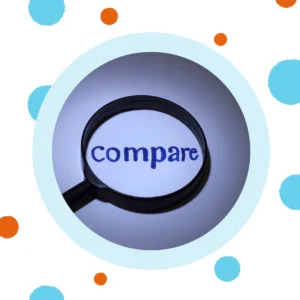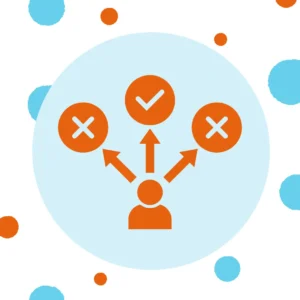
How Long Do Phonak Hearing Aids Last?
You dropped serious money on Phonak hearing aids. Now you’re wondering how long they’ll actually work before you’re back at square one. Fair question. Hearing
Home » Top 8 Tips on How to Deal With Hearing Loss

Hearing loss can sneak up on you like a cat in fuzzy socks. One day you’re enjoying a lively dinner conversation, and the next you’re nodding politely while wondering if your friend just said “pass the salt” or “pass the vault.”
You’re not alone. According to The Lancet, an estimated 1.57 billion people worldwide live with hearing loss. That’s nearly one in five people. So while you might feel isolated at times, millions share your experience.
The good news? You can learn how to deal with hearing loss in ways that protect your emotional well-being, help you stay connected, and make life a lot more enjoyable. Whether you’re new to hearing challenges or have been managing them for years, these eight tips will help you thrive.
Table of Contents
ToggleThe first and most important step is acceptance.
Hearing loss isn’t a personal failing, nor is it something to hide like your embarrassing teenage haircuts. It’s a medical condition and one you can manage.
Being upfront about your hearing loss helps others communicate with you effectively. You don’t have to make it a big production. A simple, “I have some trouble hearing, could you speak a bit slower?” works wonders.
When you own your hearing loss, you set the tone for the conversation. People are generally happy to accommodate, they just need to know how.
Imagine being at a holiday dinner with clattering dishes, multiple conversations, and background music. Instead of nodding and smiling at your cousin’s story you can’t hear, say:
“Hey, it’s hard for me to catch everything with all this background noise. Mind slowing down a bit?”
It’s direct, polite, and it tells people how to help you.
Owning your hearing loss means advocating for yourself in every setting, such as work, social events, and even family gatherings. It’s not about drawing attention to yourself; it’s about making sure you can fully participate in life.

Thanks to modern tech, living with hearing loss today is very different from even a decade ago.
Hearing aids aren’t just amplifiers anymore; they’re sophisticated mini-computers. Some stream calls and music, connect directly to your TV, and even filter background noise automatically.
Check out our guide to the six best hearing aids for noisy environments to see how advanced these devices have become.
According to a study published on PMC, assistive listening devices can significantly improve comprehension in challenging listening environments, reducing the mental effort needed to follow conversations.
Location matters. A lot.
In restaurants, pick a table against a wall, and face the wall so noise is behind you. This allows your hearing aids (or your ears, if you’re unaided) to focus on the person in front of you rather than the entire room.
At events, avoid sitting next to speakers, clanging kitchens, or air vents that roar like jet engines.
Strategic seating isn’t just about comfort. It’s about setting yourself up for communication success.
You can’t reverse most types of hearing loss, but you can protect what remains.
Loud sounds can damage hearing cells in your inner ear. And once those cells are gone, they don’t grow back. That’s why hearing protection is critical, even if you already have hearing loss.
The World Health Organization estimates that over 1 billion young people are at risk of noise-induced hearing loss due to unsafe listening habits. Protecting your hearing now pays off later.
Background noise is one of the biggest challenges for people with hearing loss. Think of it as the villain in your personal soundscape.
When possible, attend restaurants or public places during off-peak hours. Not only is it quieter, but staff often have more time to accommodate your needs.
If you’re unsure when hearing aids could help most, our guide on when you need hearing aids offers clear signs it’s time to get support.

Hearing loss can make socializing exhausting. Conversations in noisy environments require more mental effort, which can lead to listening fatigue.
But isolation can harm mental health far more than the occasional communication challenge. Social withdrawal is linked to higher rates of depression, cognitive decline, and even physical health problems.
A Dutch study found that each decibel of hearing loss was linked to a 7% increase in loneliness among adults under 70.
For more subtle signs of hearing challenges that might impact your social life, see our guide on unexpected signs of hearing loss.
No one can read your mind, especially if your needs aren’t obvious.
Tell people what works for you. For example:
“Could you face me when you talk? I can understand you much better that way.”
Good communication is a two-way street. When you let others know how to help you, you make their job easier and your life better.
No one should have to deal with hearing loss alone. Not even the most determined, independent types. Having a support network makes all the difference.
Your “Hearing Support Squad” is the group of people, tools, and resources that help you thrive. They’re the folks who’ll repeat the punchline of a joke without making you feel awkward, or who’ll make sure you get the important details in a noisy meeting.
Trusted family and friends
These are the people who know your needs without you having to explain them every time. They’re the ones who naturally face you when they speak and who don’t sigh dramatically if you ask them to repeat something.
Communication allies at work
Identify coworkers who “get it” and can fill you in if you miss a detail in a meeting. Sometimes just knowing you have a backup listener lowers stress.
Hearing care providers
Even if you don’t visit them every month, having a relationship with a licensed hearing care provider is invaluable. They can recommend devices, adjust settings, and keep you informed about emerging hearing technologies.
Peer communities
Online forums, local hearing loss support groups, or even social media pages can connect you with people who understand the challenges and can share solutions you might not have tried yet.
Managing hearing loss isn’t just about devices and settings, it’s about human connection. A support network helps you:
Your squad isn’t a “set it and forget it” kind of thing. Check in, share updates on what’s working (and what’s not), and don’t be afraid to ask for help when you need it.
Think of it like your favorite group chat: sometimes you’re asking for support, sometimes you’re offering it, but you’re always staying connected.
By building your own Hearing Support Squad, you create a safety net that makes daily life smoother, less stressful, and more enjoyable. You’ll have the confidence to navigate any social setting knowing you’re never truly on your own and that’s one of the most powerful ways to deal with hearing loss.

Learning how to deal with hearing loss isn’t about accepting limitations, it’s about finding solutions. Whether you’re choosing the right technology, protecting your remaining hearing, or speaking up for your needs, every action brings you closer to a richer, more connected life.
And here’s the most important thing: You don’t have to do this alone.
The sooner you take steps to manage your hearing loss, the sooner you can enjoy the conversations, music, and everyday sounds that make life meaningful.
If you’re ready to hear more, enjoy more, and connect more, our team at Injoy Hearing is here to help. We offer affordable, high-quality hearing aids and personalized guidance and you don’t have to leave the comfort of your home.
Contact Injoy Hearing today to start your journey toward better hearing.

You dropped serious money on Phonak hearing aids. Now you’re wondering how long they’ll actually work before you’re back at square one. Fair question. Hearing

The Sennheiser All Day Clear and Starkey Evolv AI serve different needs despite living in the same price neighborhood. One’s an over-the-counter option that works

Choosing between two award-winning hearing aids feels impossible when both promise crystal-clear sound. The Starkey Omega AI and Phonak Audeo Sphere Infinio Ultra represent the

Choosing the right hearing aid can enhance communication and confidence. Explore key factors like lifestyle, features, and budget to find your perfect fit.
To start your journey towards better hearing with confidence, Injoy is proud to offer a 45-day risk-free hearing aid trial. This allows you to experience the difference our hearing aids can make, ensuring they meet your expectations and fit your lifestyle perfectly.
Improve your hearing and improve your life today by contacting Injoy to learn more! Call (844) 914-3331

Need hearing aids? Explore our range of hearing aids and discover the best option for your lifestyle and Unique Hearing Needs.
Are you a current patient with us? We're here to help with any adjustments, repairs, or support you may need.